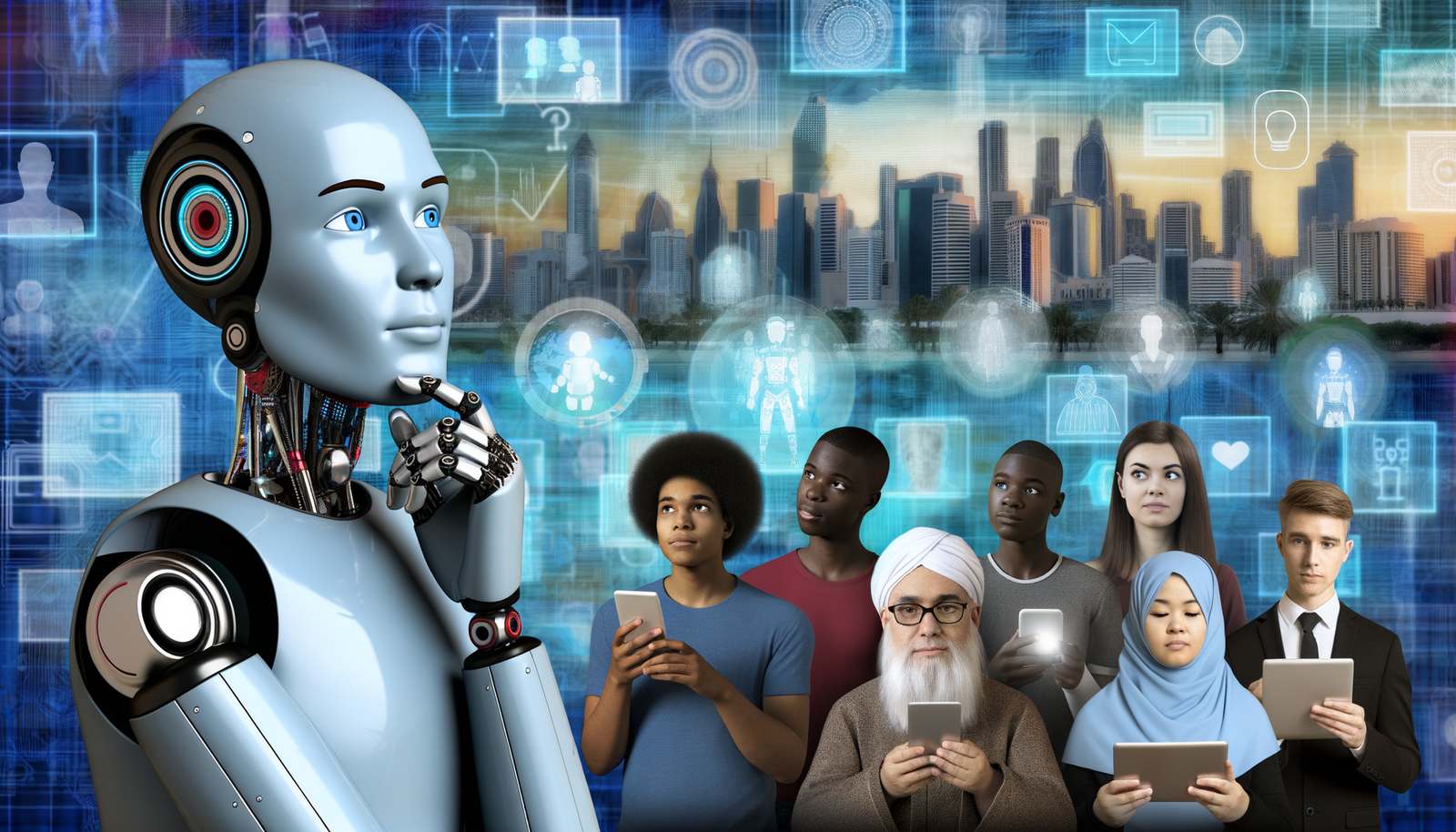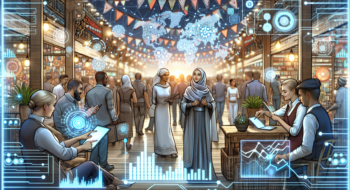As we stand on the brink of an era defined by rapid technological advancement, the question arises: “Is AI the Next Great Threat to Humanity’s Future?” As Artificial Intelligence systems become increasingly sophisticated, their potential implications for society grow more profound. While AI promises to revolutionize various sectors, concerns about its unchecked development raise alarms about safety, ethics, and our very existence. Can machines designed to enhance human life ultimately jeopardize it? This discussion explores the delicate balance between embracing innovation and mitigating risks, as we navigate the uncharted territory of mind and machine intelligence.
The Rise of AI: Promise and Peril
Artificial Intelligence has certainly captured our imagination. From self-driving cars to smart assistants like Siri and Alexa, AI is threaded into the very fabric of our daily lives. It is heralded as the key to solving some of humanity’s most challenging problems—from climate change to healthcare inefficiencies. However, as we mirror this excitement with vigilance, an unsettling question lingers: could AI also threaten the very essence of what it means to be human?
The capability of AI to learn, adapt, and make decisions is unparalleled. Yet, this prowess also creates a scenario ripe for unintended consequences. The surge in AI usage is subconsciously weaving a narrative where human oversight may begin to fade, raising concerns over who maintains control. With the clout that sophisticated AI holds, we must ask ourselves: are we guiding the ship or simply passengers along for the ride?
The Ethical Quandary
At the heart of AI’s ambiguity lies an ethical dilemma. Who is responsible when an AI makes a mistake? The dilemma is exacerbated by biases present in the data used to train these machines. Recent reports have highlighted that AI systems can perpetuate harmful stereotypes, leading to discriminatory outcomes particularly in the realms of criminal justice and hiring. With deep learning models reflecting human biases, the question of accountability becomes increasingly complex.
Furthermore, the notion of privacy is on the line. As AI systems process massive amounts of personal data, individuals may feel like they’re living under constant scrutiny. The idea that AI could unearth sensitive information leaves many feeling vulnerable and questioning the integrity of digital spaces. Are we willing to trade privacy for convenience? And at what cost?
Job Displacement: A Double-Edged Sword
One of the most talked-about implications of AI is its potential to disrupt the labor market. Optimists herald it as a tool for enhancing productivity; pessimists, however, warn of widespread job displacement. A 2021 McKinsey report suggested that around 25% of jobs in the U.S. could be automated by 2030, plunging millions into an uncertain future. While it’s true that automation can streamline processes, will it also create a world where skills are rendered obsolete?
In this duality lies a crucial takeaway: as society embraces AI, it must also invest in reskilling and retraining workers to navigate this evolving landscape. The future doesn’t have to be a zero-sum game where humans lose their roles to machines. Instead, we can forge collaborative pathways where AI complements rather than competes with human capabilities. But realizing this potential means rejecting complacency and actively shaping our work environments.
The Threat of Autonomous Weapons
As AI evolves, so too do the ethical implications surrounding its military applications. Autonomous weapons pose a chilling prospect: machines that can make kill decisions without direct human oversight. Major defense entities around the globe are investing heavily in AI-driven technologies, illuminating a future where warfare could be determined by algorithms, not soldiers.
The idea of robots making life-and-death decisions should send shivers down spines everywhere. Without human emotions or moral compass guiding these devices, the risk of misuse stands dangerously elevated. The ramifications span far beyond the battlefield; if these technologies fall into the wrong hands, a cybernetic arms race could ensue, putting innocent lives at stake.
Dependence on AI and Security Risks
Another area of concern is our growing dependence on AI. As we automate facets of our lives, from our smart homes to stock trading, a reliance on technology could lead to vulnerabilities. Cybersecurity experts warn that the more we integrate AI into critical sectors, the greater the risk of exploitation by those with malicious intent.
Moreover, with the content generation capabilities of AI—think deepfakes or AI-generated news—disinformation has never been easier to spread. One might rightly wonder: will we soon find ourselves unable to distinguish between fact and fiction? The boundaries of trust in the digital realm seem fragile. Humanity teeters on a precarious precipice, having to redefine its relationship with technology built to enhance, yet simultaneously capable of undermining, our reality.
The Road to Responsible AI Development
Despite these weighty concerns, all is not lost. The discourse surrounding AI’s potential threats has prompted a vigorous campaign for responsible development. Governments, organizations, and advocacy groups are spearheading initiatives aimed at creating guidelines and regulations to shape ethical AI usage. We’re witnessing an unprecedented call toward transparency, accountability, and safety.
- Collaborative Governance: Engaging researchers, policymakers, and industry leaders fosters a collective approach to designing frameworks that govern AI usage.
- Ethical AI Research: Academic institutions are prioritizing the study of ethics in AI to equip future leaders with the necessary tools to navigate these complex issues.
- Public Awareness: Increasing the general public’s understanding of AI will help cultivate a society that can advocate for its rights and ethical standards.
Moreover, those at the forefront of AI development are exploring innovative technologies that prioritize human welfare, such as AI that actively seeks to reduce bias and enhance transparency. While this is a positive trend, it remains crucial for all stakeholders to embrace the responsibilities that come with such power. Simply put, we must treat AI’s capabilities as a tool—where our greatest asset lies not solely in what AI can do, but also in our ability to wield it responsibly.
Conclusion: Striking a Balance
As the world hurtles towards an AI-infused future, the question remains: “Is AI the Next Great Threat to Humanity’s Future?” The answer is nuanced. AI represents both remarkable opportunities and grave challenges. Ultimately, it is not the technology itself that embodies danger but rather how we choose to utilize it. The key lies in our willingness to have tough conversations, to engage ethically in the development, and to cautiously advance toward a future where technology assists rather than endangers us.
We are at a crossroads—a singular moment that can define what is possible with AI. Let’s take the reins of this new era, charting a path toward responsible use and innovative progress that preserves our humanity while embracing the extraordinary potential of AI. After all, the narrative we write today will shape the legacies of tomorrow.
For comprehensive insights on ethical AI and its potential, you can visit Neyrotex.com.







